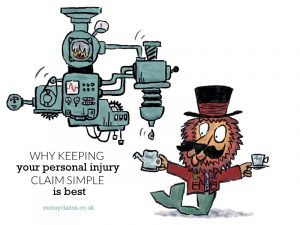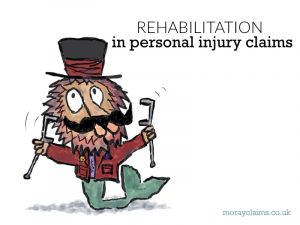Cauda equina syndrome (“CES”) is a medical emergency. Any delay in diagnosis and treatment of CES can result in life-changing physical disability and psychological injury. What is cauda equina syndrome (CES) exactly? CES is an uncommon but serious neurological condition. It is caused by compression (i.e. squeezing) of a bundle of nerve roots at the base of the spinal column. Cauda is Latin for tail and equina is Latin for horse (ie, the "horse's tail"). The seat of the problem is around where your tail would connect to your body, if you had a tail. The ‘cauda equina’ nerves provide feeling to, and enable control of, the bowel, bladder, anal and genital areas. Also, the legs and feet. So it all sounds quite crucial, doesn't it? Compression of these nerves - say, as a result of a slipped disc or lower back injury - puts the injured person at risk of permanent disability. Someone with suspected cauda equina must be referred for urgent assessment. Typically, this Continue Reading
Why keeping your personal injury claim simple (or as simple as possible) is best
“You’re ignorant. But at least you act on it.” So comments an eye-rolling Hobbes to Calvin in response to his friend’s rant about knowledge only leading to paralysis by analysis. That’s an outcome which, as a “man of action”, Calvin simply cannot afford. In other words, it’s a "simple" explanation for why Calvin will be better off not doing his homework. Calvin’s logic may be flawed but, with a personal injury claim, the simplest approach is usually the best. But can we keep things simple? In this article, we’ll consider, firstly, some of the factors that can complicate a personal injury claim. Secondly, we’ll look at complexity from the injured claimant’s perspective. And finally at “control” issues surrounding complexity: in other words, who has the power to make things simple or not? There are lots of ways a personal injury claim can become complicated. That's not a complete list by any means but it gives you a few examples of areas where complexity can Continue Reading
Rehabilitation in Personal Injury Claims
Personal injury compensation claims are about money. The purpose of the process is to put you, the injured person, back in the same position you would have been in if the accident had not happened. At least, as far as that is possible through money alone. We know from research that, in many cases, rehabilitation can help injured people recover more quickly, improve their quality of life and get them back to work more quickly. This means that rehabilitation can be a key factor in getting an injured person back to the state they would have been in were it not for the accident. Where rehabilitation has to be paid for, the cost can generally be recovered as part of your compensation, provided it is reasonable. When is rehabilitation appropriate? It can be helpful in relation to both physical and psychological injuries. If you have a whiplash injury, you may benefit from a course of physiotherapy. In more serious cases, for example, involving loss of a limb, rehabilitation may include the Continue Reading
What are the downsides of QOCS for Scottish personal injury claimants?
We've talked about Qualified One-Way Costs Shifting (QOCS) before now because it is an important topic. In Scotland, the "normal rule" whereby an unsuccessful claimant for personal injury compensation will no longer have to pay court costs / expenses if the claim fails will have various exceptions. In these situations, the claimant will lose QOCS protection and have to pay the costs of their opponent. The claimant will only be liable for their opponent's expenses in Scotland where they have: We have waited three years for the QOCS regulations to come in. They were enacted from 30 June 2021. In many respects, the regulations mirror those already in force in England and Wales. The basic principle is the same and the exceptions are largely the same. Abuse of process, behaving manifestly unreasonably and also acting fraudulently or making a fraudulent misrepresentation. One big difference is that Scotland has not enacted any equivalent concept to England and Continue Reading


